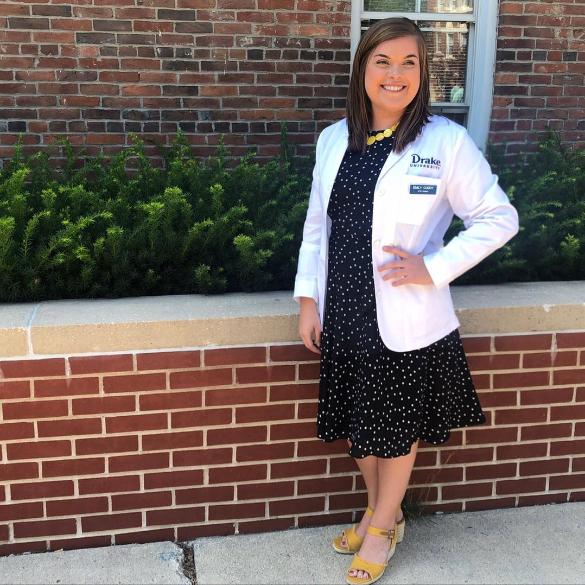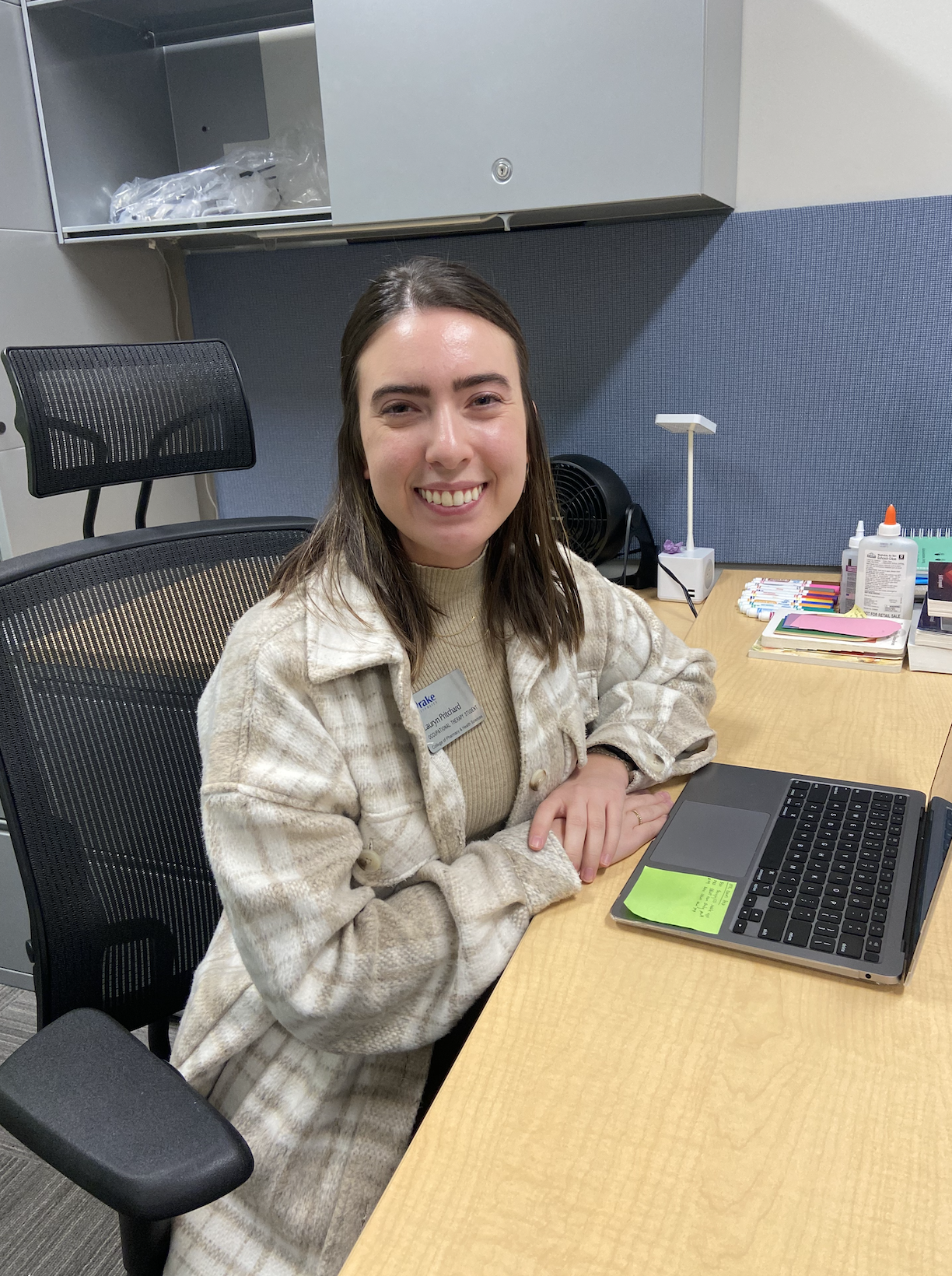Occupational Therapy Spotlight
Meet Emily Cuddy. Emily is a 2022 graduate of Drake's Occupational Therpay Doctorate (OTD) program! In her last year of the OTD program, Emily had the opportunity to complete a doctoral capstone experience at the MD Anderson Cancer Center in Houston, Texas.

Tell us about your capstone experience at the MD Anderson Cancer Center. What were your responsibilities and what did a typical day/week look like?
My responsibilities at MD Anderson were to complete an annotated bibliography proving the need for program development to address identity and body image disruption among patients with cancer. Once the research was gathered, I developed a program to address disruptions to experience of self, how one views their identity and body, using craft-based interventions. This program was named the Reintegration Program as the overarching goal is to empower patients to maintain or regain participation in meaningful activities throughout their cancer journey. I created patient and clinician handouts for each activity along with options for grading the activities to ensure patients' needs were being met. I compiled necessary materials and handouts into an organized area so that the activities were easily accessible to use with applicable patients. I presented this program to all outpatient occupational therapists at MD Anderson so they understood the program development and could ask questions before they began implementing the program. A typical day was mostly research and program development. I was able to work with a few patients throughout my capstone experience to implement program activities and make changes based on their feedback, these patients were experiencing occupational disruptions due to oncology-related body changes so they were the target population for the Reintegration Program.
What is your favorite thing about this Doctoral Capstone?
My favorite thing about my Capstone experience was getting to create a much-needed occupational therapy program that addressed occupational disruptions from oncology-related body changes. Cancer treatments can cause both visible and non-visible changes to a person's body and identity; without addressing these concerns, patients are at risk of activity and role avoidance. Throughout the entire experience, I was constantly reminded of how impactful the Reintegration Program has the potential to be. Research shows the relevance of body image and identity disruption among patients with cancer is very high; however, there is a gap in the literature related to research-based occupational therapy interventions to address these concerns. Knowing that the work I was doing during these 14 weeks was going to give patients the confidence needed to participate in meaningful activities made it all worth it. The feedback received from the patients who participated in this program during my capstone was very positive and beneficial for making necessary program changes to have the most impact among future patients.
What attracted you to Drake's OTD program?
I was initially attracted to Drake's OTD program based on the location and the reputation Drake has in providing quality education. I chose to attend Drake's OTD program based on how I felt during my interview day at Drake. I felt so welcomed, supported, and encouraged immediately that I never felt intimidated. The faculty and staff made me feel comfortable and confident throughout the whole interview process, this feeling of comfort helped make my overall decision to attend Drake's OTD program over others. My time at Drake has confirmed this initial attraction since day one. The support and encouragement provided by everyone in the program is truly remarkable and very appreciated.
Have your career goals changed at all since starting Drake's OTD program? How so?
I went into Drake's OTD program excited to learn more about the many areas occupational therapists can work. I am leaving the program knowing I really enjoy inpatient and outpatient rehabilitation for adults. Throughout my fieldwork rotations, I felt challenged in these settings due to the wide variety of diagnoses seen, but I also felt very creative when developing intervention plans. So, my career goals didn't necessarily change throughout the program but more solidified my passion for the profession and the setting I enjoy most.
How has Drake prepared you for your future career as an occupational therapy professional?
This answer could be endless; the guidance, education, and support I gained throughout my time at Drake have led me to a job I am very excited about. I went into this program thinking I had a good understanding of occupational therapy, but I am leaving realizing that occupational therapy is a profession that can change a person's life at any stage. The hands-on experiences provided by Drake helped me feel knowledgeable and confident going into fieldwork and eager to gain more information and experience in the field.
What is one piece of advice you'd give to future occupational therapy students?
Step out of your comfort zone! There are going to be so many opportunities available for you during your time at Drake so take advantage of them. Don't be afraid to look for experiences with various populations or settings, even if it isn't in the area you see yourself working in, it will always be a good learning experience.


